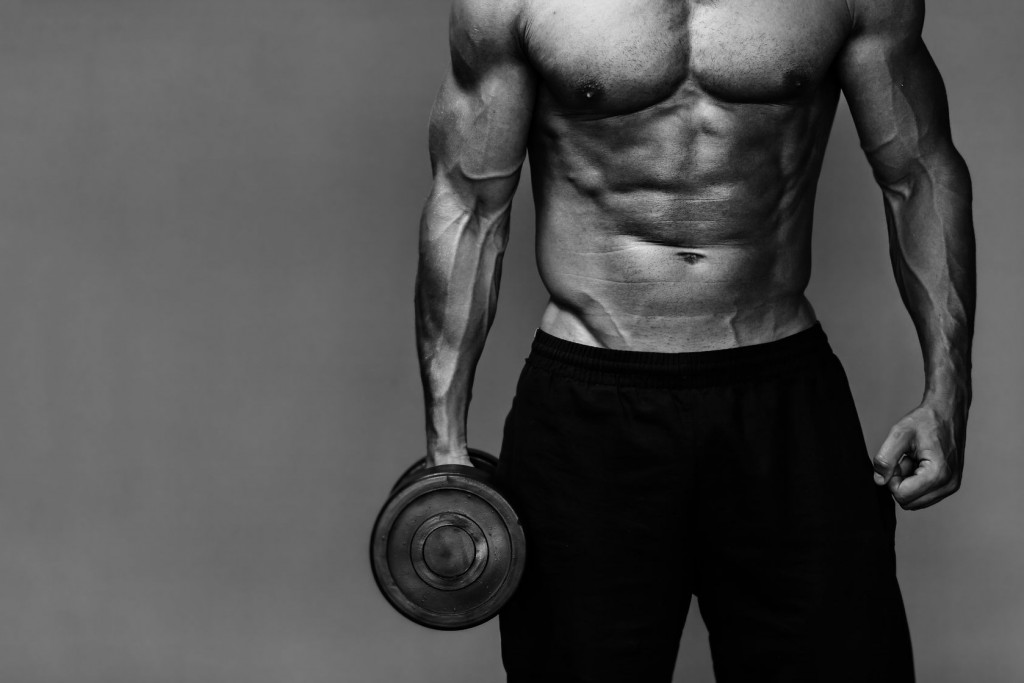In the fitness world, ignorance is not bliss. What you don’t know can definitely hurt you. In fact, the hardest part about making progress in the weight room is separating the facts from the fiction.”Broscience” — or unconfirmed advice from other weightlifters — can be one of the biggest hurdles for any novice weightlifter to overcome.
The problem with broscience is that, more often than not, it paints an incomplete picture for you. Even worse, it’s often passed down to inexperienced weightlifters by well-meaning veterans that usually have quite a bit of muscle on them.
Let’s be clear: don’t take advice from people just because they have muscle. You have no idea what that person’s genetic makeup looks like! Following the science and the guidance of the experts is your best bet to getting meaningful results.
Whether you’re a veteran of the weight room or you’ve finally decided to start hitting the gym, you’ve probably been exposed to broscience. So, in the spirit of spreading information, it’s time we crushed the 3 most common fitness myths in the industry today.
Whey is a “Fast” Protein
Even the most inexperienced lifters out there have heard of whey protein. Every supplement store on the planet has tried to sell this to you. We’ve already mentioned in a previous article that protein supplements are far from essential for most lifters.
Still, there’s one myth that’s been perpetuated by the general public. The reason that people supplement whey protein in the first place is that it’s believed to be a”fast” protein. While other protein supplements can still provide you with the same amount of protein, whey protein is supposed to have one of the fastest absorption rates when it comes to protein sources.
Like most broscience, this myth is filled with half-truths. Yes, whey has a fat absorption rate… when compared to most other protein supplements (casein being one of the primary ones). The protein is already broken down into peptides, making absorption pretty easy.
Of course, when they’re compared to things like amino acids, they’re downright slow. That’s right, even whey isolate ends up being way too slow for the timing purposes that people use supplements.
Squats are Bad for Your Knees
When it comes to the subject of broscience, no myth is more of an issue than the idea that squats are bad for your knees. Aside from having no real evidence that this is true, it ends up distracting from a massive issue within the weightlifting community: form is important.
With proper form, squats are an exercise that ends up engaging your lower body, your quads, and your posterior chain. Unfortunately, when squats are done improperly (or even without stretching the right muscles beforehand), you’re going to be exposing yourself to a variety of injuries and issues.
The Anabolic Window Closes After 1 Hour… No, Wait! Half an Hour!… Who Even Knows?
When people are talking about protein supplementation, one of the biggest reasons that they even start is that they’ve been convinced of the existence of an “anabolic window.” This anabolic window is painted by others as an opening to provide your muscles with the protein they need to grow. Beyond that, the window is rapidly closing. Generally speaking, the window is also seen as a rapidly closing one (with a vaguely defined time limit). Thus the need to time your protein consumption.
Except there’s just one minor issue: the anabolic window doesn’t exist. At least, not in the way you’ve been taught it does. First off, the fear of muscle protein breakdown (the boogieman of the fitness world) is only something you need to worry about if you happen to train while fasting. In that particular case, you should consume some mixture of carbs and protein immediately post-workout.
But more importantly, there is no evidence to support the theory that ingesting carbs and protein directly after a workout has much of an effect on your muscle protein synthesis (under normal conditions). That’s not just us having a hard time finding a study referencing it, by the way. Alan Aragon and Brad Schoenfeld, two well-respected bodybuilding nutrition researchers, analyzed every major study that touches on the topic of the anabolic window and found… nothing.
And that’s just scratching the surface. Some people still believe that cardio is more important for fat loss than lifting weights. Some people still think that if you don’t feel awful after a workout, you won’t build muscle.
There are plenty of other myths out there, being perpetuated by well-meaning people who don’t know any better. If you’re just getting into working out for the first time, take the time to research some of the principles of weightlifting. If you’re a veteran of the gym, but you’re having a tough time pushing through a plateau, take the time to reexamine some of your preconceived notions about lifting weights. We’re all here to get stronger, after all. You might be surprised at what you learn.















-300x200.jpg)







-300x169.jpg)


